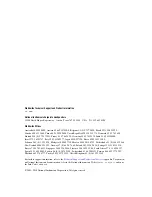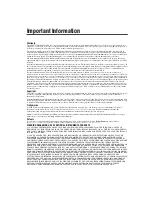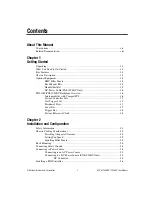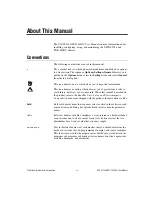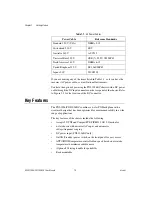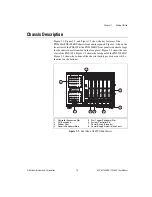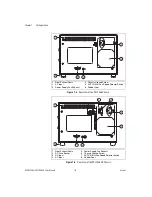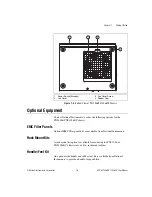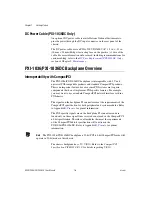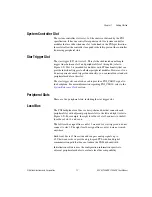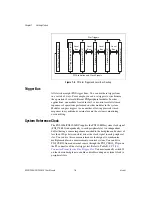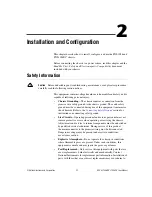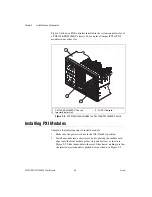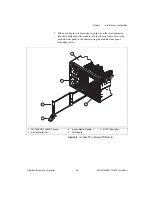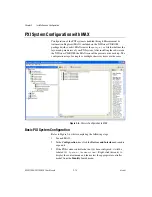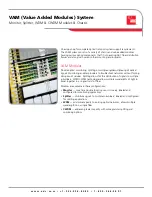
Chapter 1
Getting Started
NI PXI-1036/PXI-1036DC User Manual
1-8
ni.com
Figure 1-5.
PXI Star Trigger and Local Bus Routing
Trigger Bus
All slots share eight PXI trigger lines. You can use these trigger lines
in a variety of ways. For example, you can use triggers to synchronize
the operation of several different PXI peripheral modules. In other
applications, one module located in slot 2 can control carefully timed
sequences of operations performed on other modules in the system.
Modules can pass triggers to one another, allowing precisely timed
responses to asynchronous external events the system is monitoring
or controlling.
System Reference Clock
The PXI-1036/PXI-1036DC supplies the PXI 10 MHz system clock signal
(PXI_CLK10) independently to each peripheral slot. An independent
buffer (having a source impedance matched to the backplane and a skew of
less than 250 ps between slots) drives the clock signal to each peripheral
slot. You can use this common reference clock signal to synchronize
multiple modules in a measurement or control system. You can drive
PXI_CLK10 from an external source through the PXI_CLK10_IN pin on
the P2 connector of the star trigger slot. Refer to Table B-4,
Connector Pinout for the Star Trigger Slot
. You must manually switch S1
on the chassis backplane to enable or disable routing an external clock to
peripheral slots.
System Controller Slot [1]
Star
T
rigger/P
er
ipher
al Slot [2]
P
e
ripher
al Slot [3]
P
e
ripher
al Slot [4]
Local
Bus
Local
Bus
Star Triggers
PCI Arbitration and Clock Signals
P
e
ripher
al Slot [5]
P
e
ripher
al Slot [6]
Local
Bus
Local
Bus


